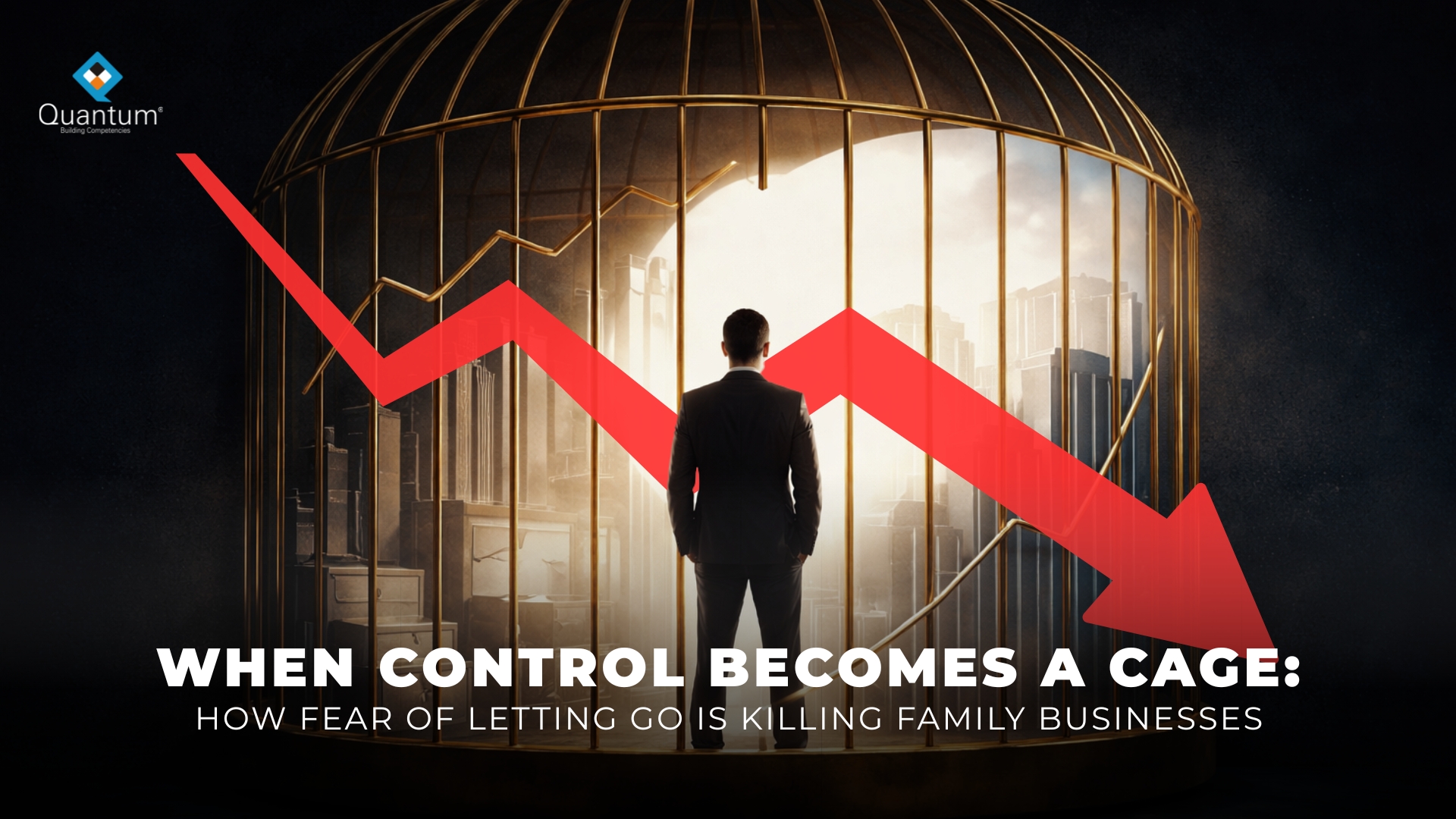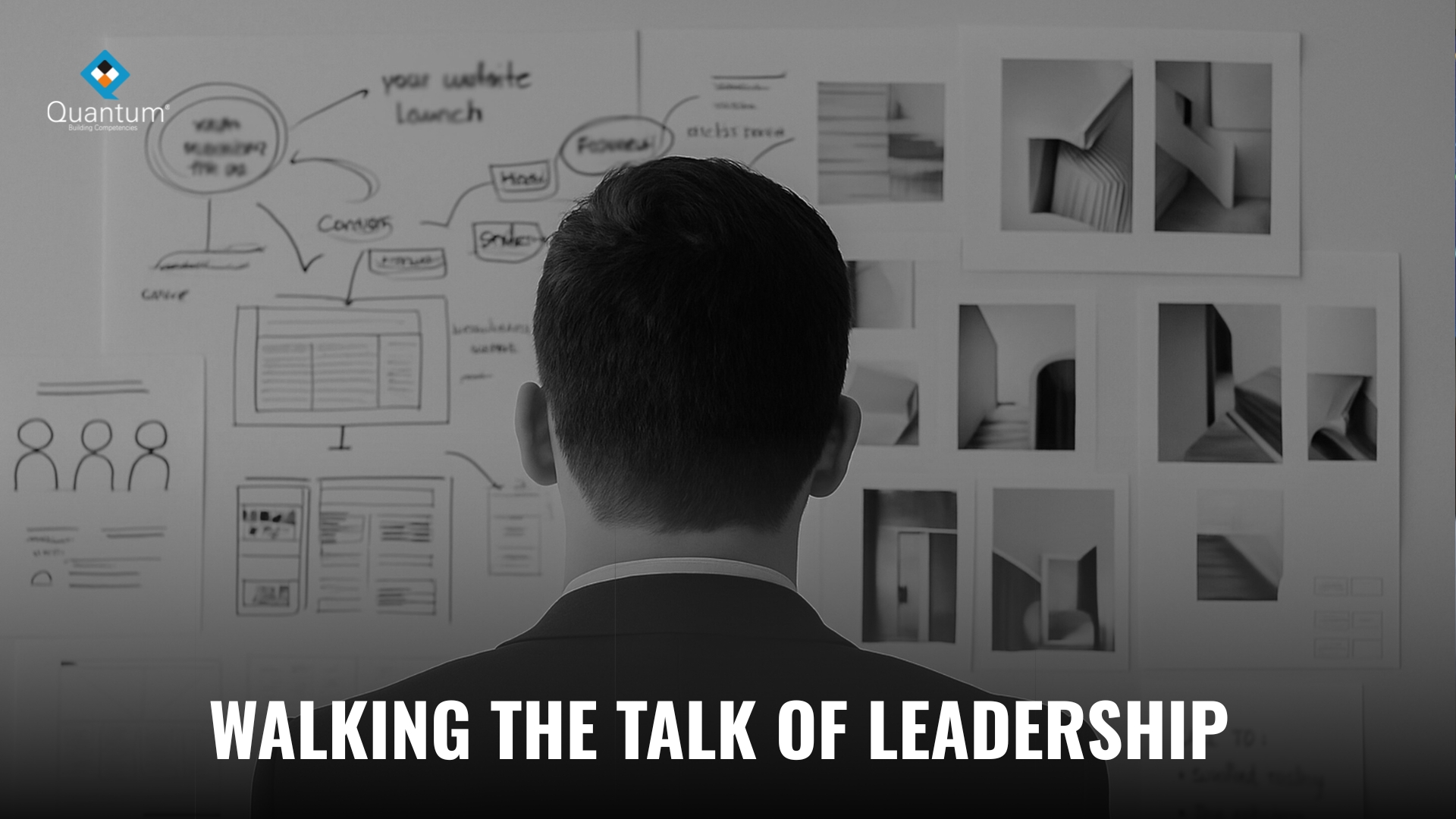
When Control Becomes a Cage: How Fear of Letting Go is Killing Family Businesses
Scene 1:The Sharma & Sons Pvt. Ltd. boardroom on Monday morning Arjun, the son, said, “Dad, I think we should

In his books “Mastering Emotional Intelligence” and “Navigating Through Emotions” Dr. Pratik P. Surana discusses the “Goldfish Syndrome” and how manipulative leaders use their followers’ emotions to their advantage.
Our Collective Memory and Its Discontents
Throughout my years of observation, I have noted how leaders who are adept at manipulating others can effortlessly influence their followers in business, politics, and social life. Both their mastery of deception and our dreadfully short memory astound me.
Emotions are potent motivators, as I discuss in Navigating Through Emotions and Mastering Emotional Intelligence. When left unchecked, they have the potential to subject entire communities to cycles of abuse. The sad truth is that human beings have a propensity to forget information quickly, but we will always remember the impact someone had on our emotions.
My term for this is “The Goldfish Syndrome.” Our emotions are like a goldfish swimming in a bowl: we become shocked, hurt, hopeful, and tricked again.
Scenario 1
An Indian Corporate Boardroom
As the lights go down, a CEO walks in exuding the self-assurance of a Bollywood villain.
[CEO smirking]:
Our new mission statement is ‘Innovate, Integrate, and Instigate.’ We are proud to present it today, ladies and gentlemen.
Employee (perplexed):
“Excuse me, but were you referring to ‘Inspire’ rather than ‘Instigate’?”
“No, no,” the CEO said. The word “instigate” is ideal. Employees that are confused tend to be loyal!
(As HR stealthily revises resignation forms, the boardroom bursts into uneasy laughter.)
The Political Game of Manipulation: An Endless Drama
When it comes to taking advantage of our emotional short memory, politicians are probably the best.
Picture this:
A leader previously made a campaign pledge to “bring achhe din,” but instead of that, they brought a raise in GST and worsened traffic congestion. But when the same leader comes back three years later, this time pledging even brighter days, we cheer once more, much like cricket stadium spectators.
Scenario 2
Takes place at a political rally in India. “Cheers!” the crowd yells as cameras roll. A politician does a wedding-reception-style wave.
Political figure:
“My beloved villagers, I constructed a bridge in your town three years ago!”
An Ageing Crowd Member:
“However, after just one monsoon, that bridge gave way!”
Political figure (with a dramatic pause):
So, my friends, I’ve decided to construct two bridges! We must double our efforts if we want to make progress!
Audience: “Wow! Wow!” (cheers stronger than a century by Virat Kohli)
In an instant, the heartache of the autumn is supplanted by the anticipation of the future.
Playing the Emotional Game
I call these strategies “Emotional Chess.”
There are four main strategies used by manipulative leaders:
1. Be Wary Pawns: “Join me or face the consequences!”
2. Hope Bishops: “I am the only one who can rescue you from this terrible situation.”
3. The Shame Knights: “How could you possibly doubt my virtuous motives?”
4. Another Scandal! “Oh my, another distraction!” Dump the previous one.
Because our logic is low while we’re emotionally invested, these strategies work exceptionally well.
I stress in Mastering Emotional Intelligence that unless we learn to identify these cues, we will continue to make the same mistakes.
Scenario 3
“The Startup Townhall”
(An ebullient young entrepreneur gives a speech to his staff that rivals a TED Talk.)
From the beginning:
We are more than a business; we are a family, team.
The engineer:
“Are layoffs being announced once again?”
Founder with a smile:
Forget it! Switching gears! Your enjoyment is our ultimate currency, from pay to emotional fairness!
(The whole room lets out a collective sigh when HR understates their LinkedIn activity.)
Why We Can’t Help But Fall For It?
Remembering things becomes easier as time goes on, but our feelings remain.
A leader’s speech may have left an impression of hope or importance on us, but we may forget the specifics of previous setbacks. Because of this, we are so easily manipulated by those who have let us down in the past.
To break this pattern, I provide the following strategies in Navigating Through Emotions:
Be calm before responding. Just five seconds of thinking things through can save you a lot of trouble later on. Keep the message and the messenger separate. Charm isn’t always a guarantee of truth. Know what sets you off. You should pause and consider why someone’s comments might evoke such strong emotions in you.
Scenario 4:
The Drama of Social Media Redemption
(An influencer who is involved in a scam makes an emotional appeal by appearing on television while carrying a puppy.)
Leader with a tear in their eye:
“I had no idea that cryptocurrency was a hoax! Optimism and love were all I was trying to convey.
As a comment follower:
“Stay strong, queen; we forgive you.”
As quickly as the gridlock during Mumbai’s Ganesh visarjan, responsibility vanishes.
Moving Forward:
The Power of Emotional Intelligence
Although we may not be able to stop manipulative leaders, we can have power over ourselves.
“Emotional Intelligence” is more than just a marketing term; it’s a protective mechanism.
It becomes more difficult to deceive someone when we are aware of our own and other people’s emotions.
Think about this the next time someone attempts to convince you with an emotional apology or dramatic speech:
What did they say the last time around? Where is the proof? Am I responding irrationally or emotionally?
The Citizen Awakens in the Final Scene
Citizen (with a proud posture):
“Esteemed leaders, the days of manipulating others have come to an end! Navigating Through Emotions and Mastering Emotional Intelligence are now mental and physical additions to my bookcase!
“Oh no, they’ve learnt to think for themselves!” the leader says uncomfortably as he adjusts his tie.
My friends, that is the day the manipulative sharks begin to swim for cover, and the goldfish start to develop memories.
My Final Remark
Working with emotions and leadership for decades has taught me one thing: manipulative leaders will always be around, but we give them carte blanche when we don’t learn to control our own emotions.
Long-term facts must be trumped by short-term emotions.
Never dance to a nice melody without first making sure no one is stealing from you.
© Dr. Pratik P. SURANA (Ph.D.)
#GoldfishSyndrome #EmotionalIntelligence #LeadershipInsights #PratikSurana #QuantumGroup #NavigatingThroughEmotions #MasteringEmotionalIntelligence #LeadershipDevelopment #CorporateWisdom #EmotionalAwareness #ThinkBeforeYouFeel

Scene 1:The Sharma & Sons Pvt. Ltd. boardroom on Monday morning Arjun, the son, said, “Dad, I think we should

“Culture eats strategy for breakfast.” What most leaders forget is that culture eats leaders first. Peter Drucker articulated this decades

“Hey, do you ever feel like you don’t have any energy?” That’s how a recent talk with a 42-year-old IT